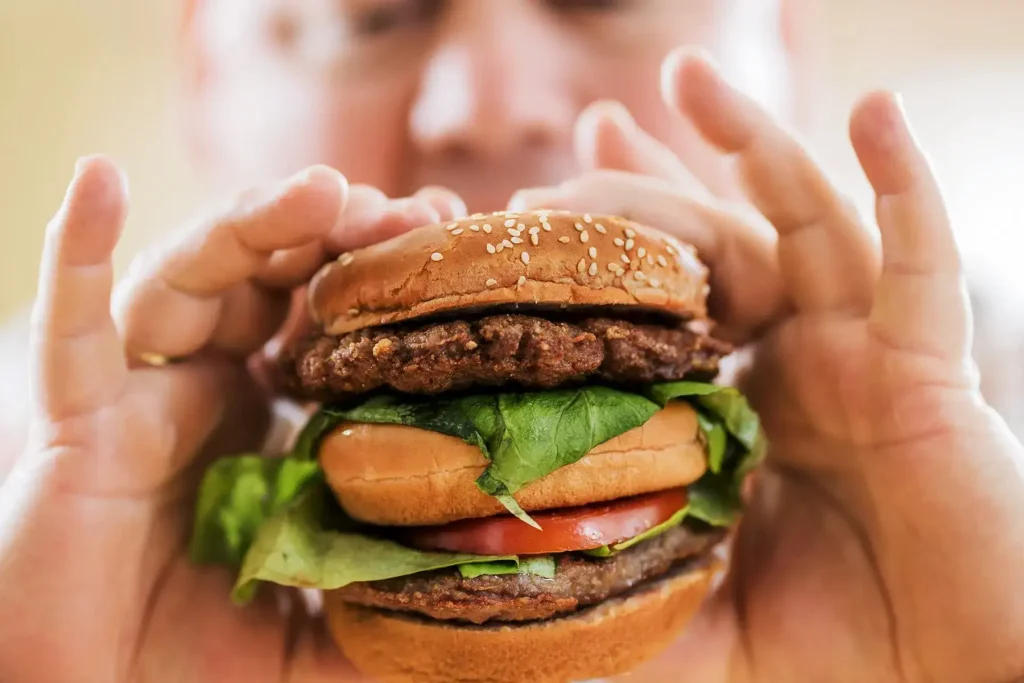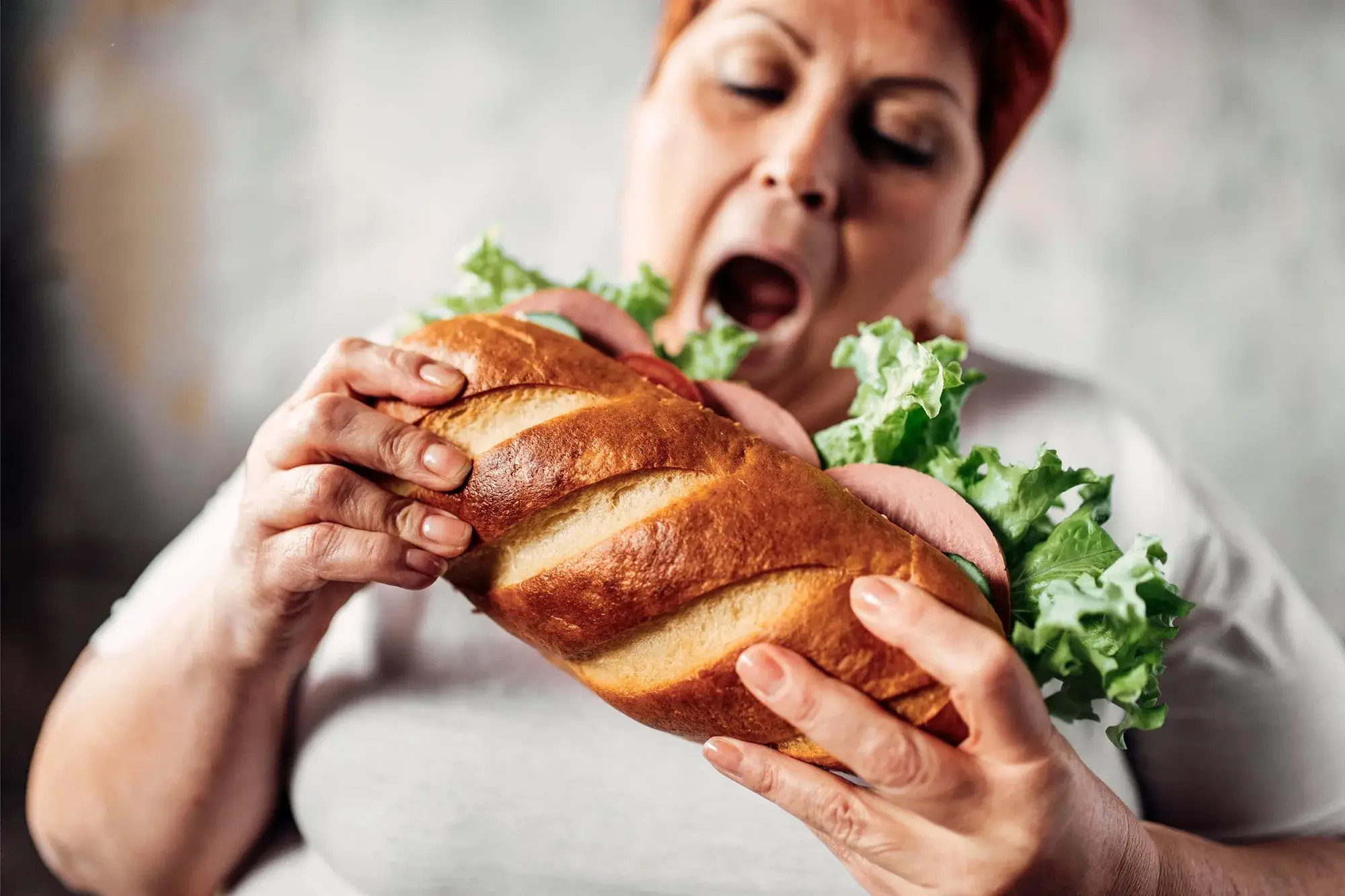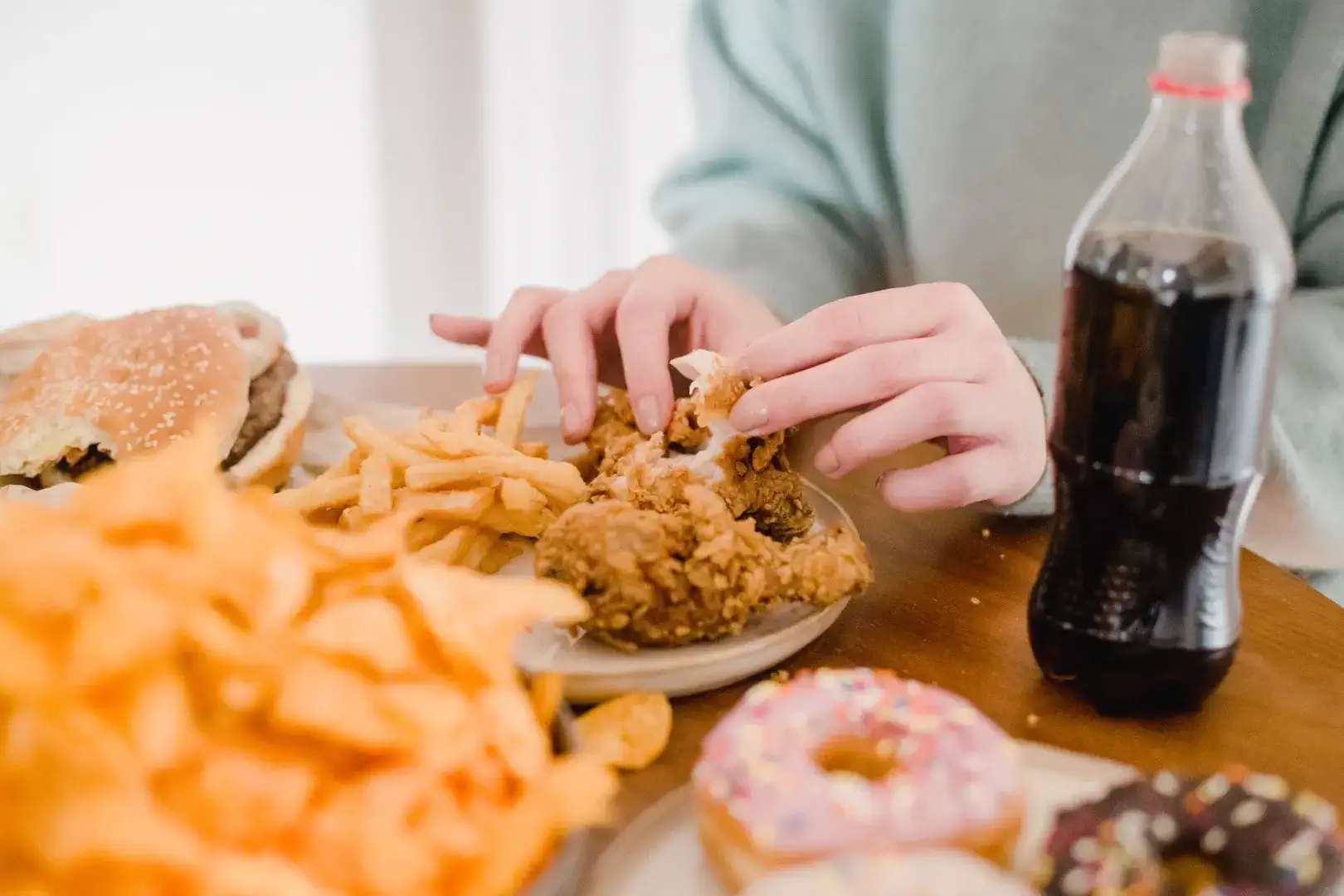
Overeating in the Elderly: Cause and Tips to Appetite Control
Overeating in the elderly can affect their physical and mental health. Various factors, including hormonal changes, decreased satiety, loneliness, psychological problems, and easy access to high-calorie and unhealthy foods, can cause overeating in older adults. This condition can lead to serious health problems such as diabetes, heart disease, poor digestion, obesity, and decreased bone health.
To help seniors manage overeating and maintain physical and mental health, a caregiver can be helpful. Children and those around them can also help the senior have healthier eating patterns by planning a balanced diet, scheduling meals appropriately, encouraging regular exercise, and accompanying them to meals. In the rest of this article from Human Health Mag, we will explain how to control overeating and important points related to it.
Binge Eating Disorder in the Elderly and Its Causes
As the elderly age, the nutritional needs of the elderly will vary and overeating in the elderly may occur. The elderly can be divided into two groups in terms of nutrition. The first group loses their appetite as they age, and the second group overeats, which will lead to obesity in the elderly. It is true that if you do not address this problem, it will have dangerous complications, but binge eating in the elderly is a completely solvable problem, and by following a number of tips at home and under the supervision of a doctor, you can resolve this disorder in the shortest possible time.
According to the relationship between elderly nutrition and diseases, when an elderly person develops an eating disorder, the consequences can be disproportionately devastating when combined with the physical effects of aging. Unfortunately, there are numerous barriers to caring for seniors who struggle with other eating disorders. For example, the availability of exercise programs in their area may be limited. There are many reasons for overeating, the most important of which are:
- Lack of control over food intake while eating
- Eating alone and in secret
- Eating too much food in short intervals
- Eating without feeling hungry
- Lack of exercise or movement after eating
- Extreme guilt after eating
- Cravings for sugary foods
- Cravings for unhealthy foods
- Eating snacks between meals

Causes of Overeating in the Elderly
Overeating disorder in the elderly occurs for various reasons, which may be due to any reason such as accident, severe stress, illness and many other things that encourage the elderly to overeat. But the most important reasons why the elderly suffer from overeating are the following:
- Ageing: With increasing age, inactivity occurs in the elderly and they may resort to binge eating in order to calm themselves. Of course, by knowing the food requirements for the elderly, excessive appetite in the elderly can be prevented.
- Depression: Financial problems for the elderly or the loss of an emotional partner cause depression in and will be one of the reasons for overeating in the elderly.
- Feeling of loneliness: The more time passes for the elderly, the lonely they will feel and the more they will overeat in the elderly.
Strategies to Control and Reduce Overeating in the Elderly
Now it is time to explain the methods of managing and controlling overeating in the elderly caused by loneliness in the elderly, depression, illness or reasons. By taking the following measures, you can reduce this problem to a significant extent.
Pay Attention to Meal Planning
Hunger is one of the most important factors associated with overeating. Many elderly people wait until they are hungry and then prepare their meals. As a result, they experience a lot of hunger and eat more than their stomach’s actual capacity when eating. Meal planning allows the elderly to avoid long periods of hunger and reduce the risk of overeating or bulimia.
It is necessary to help the elderly plan their meals for each week, and also make sure to anticipate healthy and nutritious snacks in this plan. Living in a nursing home can present unique challenges for seniors. Some may only need part-time help with exercise or meal preparation, while others may have serious medical conditions and require specialized care and assistance.
Increase Your Protein Intake Regularly
Protein can help seniors feel fuller for longer, which can help prevent overeating in the elderly. It’s best to start your senior breakfast with a high-protein breakfast, such as oatmeal and berries, egg whites and vegetables, or Greek yogurt with nuts and fruit. Protein-rich foods can help you feel fuller and reduce hunger throughout the day. Eating more protein can also help you lose weight, prevent obesity, diabetes, and other health problems. The best protein powder for seniors over 80 can also help with weight management for seniors.
Controlling the Size of Meals
Instead of depriving the elderly from eating, it is necessary to reduce the size of meals at breakfast, lunch and dinner. If there is a lot of food on the elderly’s plate, even if they are full, they will probably eat the whole meal. By controlling the size of meals, overeating in the elderly can be prevented. Therefore, it is necessary for the elderly to practice controlling the size of their meals and reduce the likelihood of overeating. Some of the best ways to control the size of meals are:
- Serving food on smaller plates
- Drinking a glass of water before meals
- Determining the appropriate size of meals based on age and weight
- Requesting smaller portions when eating out

Getting Quality Sleep
Lack of sleep can lead to hormonal fluctuations that can negatively affect the elderly’s appetite during the day. When the elderly person does not get enough rest at night, the elderly’s appetite may increase and as a result, they may experience overeating. In addition to overeating, lack of sleep can also lead to cravings for unhealthy foods such as cakes, cookies, chips, and soda. Getting at least eight hours of sleep each night can help prevent these unhealthy cravings and reduce the risk of overeating in older adults.
Drink Enough Water
Overeating and binge eating can occur when the body mistakes hunger for thirst, which is because hydration is vital for the body to function properly. Therefore, older adults need to drink enough water throughout the day. Every time an older adult feels the urge to snack, encourage them to drink a glass of water instead. Drinking water can reduce the urge to overeat in the elderly and snack intermittently, and can also help prevent the consumption of sugary drinks and high-calorie foods.
Prohibited Substances in the Diet of the Elderly
Some foods that are harmful to the elderly and cause overeating in the elderly and should be avoided include:
- High-fat and fried foods: These foods contain unhealthy fats and high calories that can lead to weight gain and heart disease.
- High-salt foods: Excessive salt consumption can lead to increased blood pressure and kidney problems.
- Sugar and sweets: Excessive sugar consumption can increase the risk of diabetes and heart disease.
- Processed foods: These foods are usually high in salt, sugar, and unhealthy fats, and their excessive consumption can lead to serious health problems.
Preventing Eating Disorders in the Elderly
There is no surefire way to prevent eating disorders and overeating in the elderly, but some steps can reduce the risk of developing these disorders. Some of these steps include:
- Being aware of the symptoms of eating disorders
- Educating about the importance of a healthy, balanced diet
- Supporting older adults who are at risk of eating disorders

How to Diagnose Overeating in the Elderly
Overeating in the elderly is usually diagnosed by a mental health professional, such as a psychologist or psychiatrist. In this process, the doctor asks the patient questions about their eating behaviors, mental and emotional state, and eating patterns. Psychological evaluations usually include questionnaires that help identify the person’s level of control over their eating behaviors and emotional problems. These assessments may help to accurately diagnose binge eating disorder. Sometimes, physical exams and medical tests may also be used to assess the person’s health and identify problems such as obesity or metabolic disorders.
The doctor may order tests to check for physical complications caused by overeating, such as high blood pressure or heart problems. An accurate and timely diagnosis of binge eating disorder can help prevent more serious problems. The diagnosis of binge eating disorder should be made by a team of experts including a psychologist, psychiatrist, and general practitioner in order to best provide effective treatments. Using clinical interviews and specific tests, doctors can determine the severity of the disorder and the individual’s treatment needs.
Concluding Remarks
Overeating in the elderly is a multifaceted problem that has both physical and psychological causes and social and cultural roots. Its consequences can severely threaten the physical and mental health of the elderly. Managing this problem requires a comprehensive approach that includes nutrition, psychology, lifestyle and family care.
Considering the growing trend of the elderly population in the world, addressing this issue becomes doubly important. Although overeating in the elderly is a challenge, with awareness, prevention and timely interventions, its negative effects can be reduced and the quality of life of the elderly can be improved.
Thank you for following this article so far. If you also have information or experience in this field, you can share it with us and other users.

Frequently Asked Questions
What Can We do to Prevent Overeating?
To prevent overeating, eat regular, small meals, drink plenty of water, eat healthy foods, and reduce stress.
What are the Consequences of not Treating Binge Eating in the Elderly?
Untreated binge eating in the elderly can increase the risk of heart attack and stroke, diabetes, high blood pressure, cancer, and heart problems. In short, it can be said that not treating this condition can cause irreparable damage to a person’s health.
What is the Difference Between Bulimia Nervosa and Binge Eating Disorder?
In bulimia nervosa, after eating large amounts of food, the person avoids the absorption of these substances by the body by vomiting, and therefore maintains their weight. In binge eating disorder, the affected person eats to the point of stomach pain and feels ashamed after doing so, but does not take any action to burn this amount of calories. Therefore, most of these people suffer from obesity and severe overweight.
Does Depression Lead to Binge Eating?
This mood disorder has different effects and complications in each person. Depression leads to binge eating in some people, and in others, it leads to loss of appetite and weight loss.
